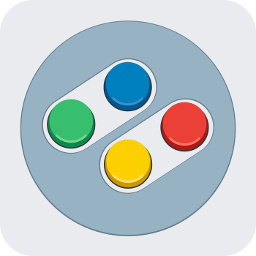With their recent update it seems they are on the last step to making their free version completely useless – are there any good alternatives out there? Preferably something that has a similar android app. I know I could use ssh+vi in a text file, but I’d prefer something a bit more streamlined
A bit of a self promo (I’m the main author), but you may also want to look at SilverBullet as alternative: https://silverbullet.md/
Bit more technical than EverNote. More like Obsidian, but 100% open source and self hosted.
That landing page is pretty clever BTW.
What would you say are the best reasons to prefer your app over obsidian?
It’s an offline capable PWA. So it works on any device that has a modern web browser with having to install anything (on the client). It’s open source software. It’s just different.
I suspected the site was a demo of what the software LOOKED like, then I got to the part where y’all say it’s functional. That’s a REALLY cool way to do an intro!
Do you support MathJax/LaTeX, toggles, and embedding images? If so, I might just switch off of Obsidian.
Latex yes: https://github.com/silverbulletmd/silverbullet-katex
Not sure what you mean with toggles.
And embedded images: yes. Just drag and drop or copy and paste them.
Thank you for the reply!
This is what I mean by toggles.
Obsidian. Very simple, all functionality is free, offline, all notes are accessible on your PC, you don’t even need Obsidian to open them because they are in Markdown. Has tons of community plugins for every need, even a Notion-like tables plugin. There is an android app which looks fine but I don’t use it much so I can’t say anything about it. But since all your notes are offline you have to think of ways to sync them. There is a paid Obsidian sync which you dont have to use or you can sync with any other method (manually, github, syncthing, etc…)
Edit: Oops, just realized the post is in FOSS community and Obsidian doesn’t seem to be open source. Sorry! I’m not going to delete the comment though, maybe it’ll help someone
you don’t even need Obsidian to open them because they are in Markdown
This is crucial for me. I have existing sets of notes in Markdown and still want to edit in Vim or other editors, but sometimes in Obsidian too.
Thanks, I posted it here, because I didn’t know of any more fitting community, I’ll look into it!
You can try Foam as an open source Obsidian alternative. As far as I know, it only exists as an VSCode extension, but for me that works fine
I recommend silverbullet.md as someone else posted above.
Logseq is an open source alterative to Obsidian too
First off, Notion is vastly superior to Evernote in every way (IMO). They have super streamlined apps for both Android and iOS, and the learning curve is negligible. Fully accessible in any browser, too. Once mastered, Notion is ridiculously powerful, and their free account ridiculously generous.
That being said, I recently discovered Obsidian, and although I have big love for Notion, I don’t think I’ll be using it anymore.
Obsidian also has apps, both for mobile and (native) desktop (Mac, Win, Linux),
is open source(edit: my bad, not open source), and has a thriving plugin community on GitHub.The learning curve is steeper, and Obsidian is one of those things that’s so flexible that it’s borderline overwhelming, but if you can wrap your head around how you want to use it, make it suit your needs, it’s the absolute bee’s knees.
Personally, I use Obsidian on my Mac desktop, and sync my Vaults (basically just a specific folder on your HDD containing your notes (individual markdown.md files) and folders) with Google Drive. I then sync the changes to my Android phone using Autosync for Google Drive, where I use the native Obsidian app, and Google Drive syncs to my Chromebook where I run the Obsidian Linux client.
I can’t stress enough how much I love Obsidian, it’s truly been one of my top 3 new software revelations in the last 5 years (Raycast and Midjourney being the other two). Highly recommended ❤️
Edit: Sorry, just now noticed this was posted in FOSS, so my suggestions might not be valid. Just thought since you’re coming from Evernote, and there are fantastic, free alternatives, you might want to look into those 🙂 Both my recommendations have paid options (Obsidian offers paid sync, but is completely compatible with free alternatives), but both work amazingly without ever opening your wallet.
I use obsidian too! while it’s not open source, there’s so many community plugins and all your notes are stored on your computer in markdown, so you have complete control over your notes (you aren’t locked in to using obsidian). I sync my notes with OneDrive, then I use the OneSync mobile app to get my notes synced onto my phone.
something similar to obsidian is logseq, it’s open source but it’s more geared towards bullet point notes. I used it a bit and it didn’t make sense for me (I was mostly journaling, but it looks very promising if you take notes in a bullet point format!)
Now that I’ve migrated away from Reddit, I will miss /r/Obsidian. I wonder if there’s a Lemmy channel somewhere 🤔
there’s also a smaller one here !ObsidianMD@kbin.social
Don’t have any kbin apps yet, will have to give it a try 😊👍
Kbin doesn’t have any apps right now as there’s no API, but I’m just using Firefox on mobile
Ah, I see! Still finding my Fediverse sea legs, just assumed there was an app 😊
I tried Obsidian, but I’m building a meal planner and a workout planner in Notion and I just can’t imagine getting anywhere near this juice for my squeeze from Obsidian. I also live for the consistency between Windows and Android and the simple and clear notifications from my projects, tasks, and calendar on BOTH reliably.
Do I need to give Obsidian a 2nd look? Any resource you recommend for plug-ins or specific plug-ins? Thanks!
Honestly, that sounds like something you’re going to have a much better time doing in Notion 😅
Your use case is outside the type of thing I use Obsidian for (notes, brainstorms, longform/fiction writing, project development), so there might be plugins I don’t know about that will help you do what you’re describing, but then I’m not the right person to ask 😕
I’m not sure what type of functionality it is you want to end up with, but if Notion doesn’t get you there, my first thoughts would be to try Google Sheets (can do almost anything, but steep learning curve for advanced stuff), or maybe even Airtable (which I haven’t looked at since I found Notion, at least 5 years ago, so unsure how they’ve been developing).
Good luck with the project! 😃🤘
I really, really like Joplin.
I had not heard of Joplin, thank you for mentioning it. Just installed to Android and OSX, syncs with Syncthing beautifully! I think I found my new note taking system.
I’m glad you like it! I had never heard of it either, until i went looking for free notes apps. Easily my favorite one I’ve used
I use the Notes app of Nextcloud. It syncs flawlessly between Linux and Android. Of course with your own instance of Nextcloud, hosted or self-hosted, you get sooo much more.
I’ve heard good things about logsec + Syncthing.
I used to use evernote mainly to store OCRed pdfs with some metadata. Moved my workflow over to a self hosted paperless-ngx instance. I’ll never go back.
I’d like to do this too! Any idea how best to migrate my stuff from Evernote?
You can export notebooks directly from Evernote, and then some apps can import them from there. I know Joplin can but there are some others as well.
I used yarle to convert evernote exports to obsidian. The pdfs will be accessible in the filesystem then.
It’s not difficult to get the PDF’s onto the file system, you can just export them there.
What’s difficult is getting them imported with all the metadata they originally had into another system with the same preview and search capability as Evernote.
Obsidian doesn’t look great for dealing with PDF’s from what I can see. What’s your feeling, would it work well? Or is paperless-ngx somehow accessing them from obsidian?
I don’t understand why obsidian is involved if you access them with paperless-ngx.
My first idea was to use obsidian as note and pdf app. I did add some metadata to the notes, but I never used them - full text did it for me. Hence the obsidian path.
There are plugins for obsidian that allow ocr stuff, but I don’t use them. I kind of split my workflow.
It sounded like from your first post that you were using paperless-ngx for PDF’s now. Do you use it that way or something else?
Notes, todos, stuff -> obsidian
Pdfs -> paperless
😊
So any advice on migrating PDF’s from Evernote to paperless?
There are several that I’ve been using / trying out:
- Notion
- used to be good, but it’s becoming more and more bloated, and nowadays those AI command options seem to be cluttering the quick commands.
- It is freemium, and syncs with their servers.
- It has a really good table creation system, and the keyboard navigation flows really well.
- I stopped using it since it’s becoming slower and bloated, and migrated my language notes to Obsidian.
- Obsidian
- is very capable (except that it doesn’t a good WYSIWYG table creation / adjustment system),
- it has tons of community plugins, very fast, lightweight, and customizable.
- Completely free, but it does take some tinkering, and some parts do look kinda awful.
- If you’ve been taking long notes with markdown, then Obsidian will probably suit you.
- I have all my language notes written in Obsidian and synced to Github with a plugin.
- Anytype
- is the latest one I’m trying out. Still in alpha, version 0.32
- It is clunky at times, because the keyboard navigation is not well implemented, you still need to rely on mouse to select some sections.
- But it has a really interesting type / relation definition system, where you define an object type, e.g. Movie, and you can define templates, relation to other objects (e.g. relation to Directors, etc).
- I’m currently using it to plan my games / streaming backlog, it has a good table and data view system.
I believe all 3 of them have android apps.
- Notion
I’m also looking for an alternative to Evernote since they jacked up their prices. My primary use is as a document store for OCR and indexing of scanned paperwork.
For general note taking I’m starting to use Logseq, but I don’t think that’s the right solution for long term storage, I have over 10 years of scanned documents I want to port across
Paperless-NGX seems to be the best option I found so far, but not installed it yet
I have used Joplin for a good while. I self hosted a little docker server for sync and off I went. There are paid sync plans available though. Nowadays I’m lazy and use the notes of my Nextcloud instance most of the time.
Thanks! Nextcloud could be a good solution, given that we already have that server running – do they have an app inside or just a text file? I’m not the admin of that cloud, so can’t check any extra options personally
There are several apps. There is just plain “Notes”, then there is a trello-kanban-style-thing called “Deck” and an app doing more of a fridge-magnet-notes style called “Carnet”. All of those have corresponding apps and Deck and Notes use the same CalDAV-Notes, so are interoperable.
Just adding: you can also sync Joplin through your Nextcloud instance, works well for me
Or if you have anything offering webdav, I’m syncing to my mailbox.org drive. I’m not sure if I’ll stick with Joplin, though, I’m not sure markdown is for me.
You can toggle the editor to be WYSIWYG only and then you won’t see Markdown source.
I don’t think you can do that on the Android app, though, can you? I don’t mind markdown as much on my laptop, but on the phone it’s a pain in the ass when I’m just trying to jot something down, or add to a list.
I thought you could but apparently not, unless I’m not seeing it. I was thinking of the desktop app on Linux/Windows/macOS.
It threw me off since it’s not just a plain text editor but renders some of the formatting even when editing markdown.
After Evernote announced the price hike a month or so ago I started researching alternatives. I looked into a bunch of different apps/services but decided I did not want to get locked into another proprietary system subject to enshittification. So my main criteria were:
- Cross platform with support for Android, Windows, Linux, and macOS
- Fully Open Source
- Portable/open format files (e.g. Markdown)
- Self-hosted option so files are always on devices I own
Both Joplin and Logseq fit the criteria and were good in my testing when combined with Syncthing to copy files around securely. There are a ton of other options out there but they didn’t fit one or more of my wants.
Joplin is a VERY easy transition from Evernote. It can import notes exported from Evernote, has a similar interface, and doesn’t take much getting used to.
Logseq is interesting but it’s going to take time to get used to its workflow since it’s so different. I watched a couple hours worth of videos on its use and it that style may just not be for me.
I went with Syncthing because that means the notes never leave my devices, so there is no need to depend on a server or worry about the security/integrity of the note content. The downside is that syncing outside the house isn’t so simple, though it can be nudged to work over a VPN. Not for everyone.
After spending a week or so being happy with Joplin+Syncthing I canceled my Evernote subscription and went back to the free tier, but honestly I haven’t even opened it since doing that. I haven’t needed anything in it that I couldn’t do in Joplin.
Your experience is what i am looking to accomplish. I’d like to transfer everything Evernote to a self-hosted FOSS application I can serve on my Synology NAS. I would access my notes primarily on my phone (Android) and sometimes Windows. AFIAK, Joplin would sync to my Synology NAS where it’s hosted… so I’m a little perturbed by the additional used of Syncthing.
Would someone explain the need/desire for Joplin+Syncthing?
I wanted to use Syncthing so I didn’t need a server involved and didn’t want to work off mapped drives/network shares. The client devices all handle the syncing themselves so the files are local on every device and kept in sync within a reasonable time period and if they can’t connect for a bit, that’s fine, they can work on the local files and sync up next time I’m back on the home network.
If your NAS has a similar function it can do that natively. Joplin can sync using files on the device filesystem which is how Syncthing works but it also supports syncing through a variety of other servers/services, such as Nextcloud. It’s very flexible in that way.
So essentially you can do it however you choose to do it since they are just plain text files being copied around.
if they can’t connect for a bit, that’s fine, they can work on the local files and sync up next time I’m back on the home network.
I suppose this is what I’m most concerned about. I currently use a similar situation for my password manager database. We have Windows and Android clients that connect to a shared database file and I feel like I’m constantly having to manually synchronize the file because it remains open so long on each client. I’d like to avoid this situation.
Joplin can sync using files on the device filesystem
This weekend, I’m going to attempt to get it running on my NAS and do this.
I may also try the other syncing via cloud at the same time just to test.
Each note in Joplin is a separate Markdown file so there is only a real chance of conflict if two clients edit the same note at the same time. That is much more sync-friendly than an encrypted password database file.
I have yet to hit a conflict but it’s just me editing notes and I don’t usually use multiple things in the same note at once. I did have a problem getting syncthing to work well on my phone (a pixel with newer Android) where it worked OK on my tablet and other devices. I had to hardcode the address of my laptop in syncthing settings on my phone and then it seems to be happy that way.
I use syncthing + zettlr.
Basically, just sync a folder rather than trying to find the perfect notebook app.
zettlr looks interesting, pity there isn’t an Android app at least.
I may give zettlr a spin for some other Markdown uses, though. It might be handy for use with Jekyll
Zettel notes for android. It’s not the same but similar enough.
I personally love Logseq. I use syncthing to sync the files but they’re implementing their own syncing feature. Works really fantastic and is cross platform.
I second Logseq. FOSS, completely local, stores everything in text - works well with Git, lots of plugins - it’s almost perfect
I third logseq 😅
Has a (small) learning curve. But powerful once you learn it.
It takes a while to open the first time though.
Yes, It takes it’s time indexing the graph - and you have to re-index periodically if you want you queries and graph to be in shape. I have a pretty mature KB, and this process takes no more than a few seconds, so it’s fine.
Honestly, I love everything about it, except for the app itself. It ties me to the default editor, which is an Electron-based sluggish resource hog. I’d rather have some software scaffolding to work in an editor of my preference, but that is just me. I suspect most people in most use cases won’t find it as problematic.
Yes, in fact I was searching for any CLI/TUI app for editing Logseq’s files. I feel a Logseq LSP server might help.
I’ve been toying with the same idea. Having Logseq running in server mode + creating an LSP adapter should be doable.
This is what I do as well! Logseq+Syncthing Works super well. I was already using Syncthing to sync all my files anyways so tacking on Logseq was super easy.
Definitely recommend taking notes in the Journal and using tags to categorize them
I couldn’t deal with their electron desktop client, so I ended up with QOwnNotes. Gread QT app for fellow KDE enthusiasts
I don’t like electron either. Sadly I’m a GTK lover.
I am the worst and just transferred everything to OneNote… it works well for what I use it for…
I actually like OneNote for work purposes. Everything is Microsoft so it works well for what I need it to do. Not sure I would use it outside that context though.
I use emacs with org mode, and the orgzly android app, for my note taking. It fits my needs well enough, though the android app cant do all the fancy latex insertion emacs can.
Steep learning curve but fun to use once you got how it works.











